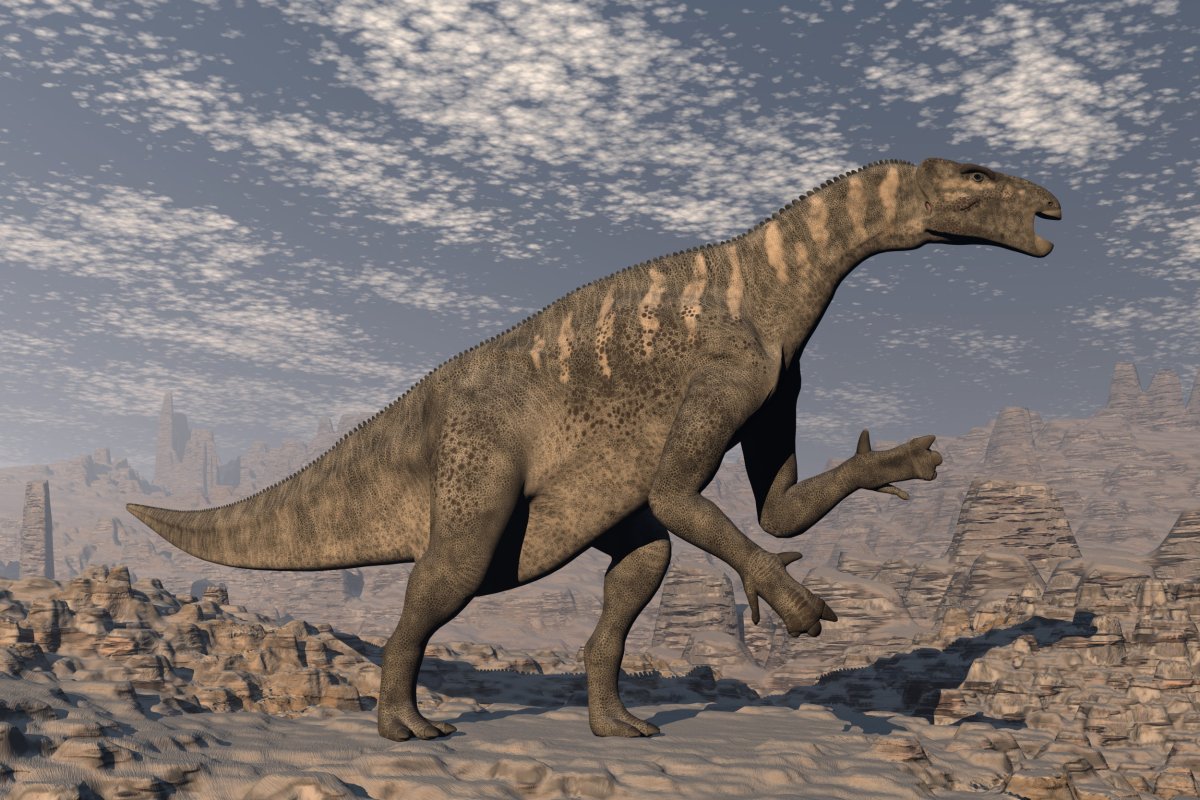Paleontologists in Spain have discovered a new dinosaur species from around 150 million years ago that they say is the largest of its kind. It has been named in honor of famed Spanish-Mexican filmmaker Luis Buñuel.
The previously unknown creature, which has been named Oblitosaurus bunnueli, is a type of ornithopod—a group of herbivorous animals that were one of the most successful and enduring dinosaur lineages.
Ornithopods flourished for a vast period of time—from more than 200 million years ago to about 66 million years ago.
A team from the Teruel-Dinópolis Joint Paleontological Foundation in Spain described the new dinosaur, which also represents a new genus (group of species), in a paper published in the Zoological Journal of the Linnean Society on July 18

According to the authors, the newly identified ornithopod could have reached a length of around 23 feet. The researchers said it is the largest ornithopod from Europe dated to the Jurassic Period.
The Jurassic spanned from the end of the Triassic around 201 million years ago to the beginning of the Cretaceous, roughly 145 million years ago.
The size of Oblitosaurus is exceptionally large for an ornithopod from this geological time period, the researchers said. In fact, its dimensions more closely resemble "more modern" ornithopods from around 125 million years ago.
The fossils that the authors used to identify the new species were found during excavations at the Barrihonda-El Humero site, located in Teruel province in the region of Aragon, eastern Spain.
Paleontologists uncovered the remains, which include a femur, fibula and teeth, among other bones, in sediments dated to around 150-145 million years ago.
"The presence of unique characteristics present in the fossil bones studied, different from those of other similar dinosaurs, has allowed us to define this new genus and this new species of ornithopod dinosaur," lead author of the study Sergio Sánchez Fenollosa said in a statement.
"These particularities, along with others including its size, are what make Oblitosaurus bunnueli a very important dinosaur for understanding and reconstructing the evolutionary history of this lineage, all in a context in which fossils of this type of dinosaur are especially scarce in the European Jurassic," he wrote.
Another author of the study, Francisco Javier Verdú, said the latest discovery enables researchers to better understand the diversity of this group of dinosaurs during the Jurassic.
The new dinosaur's name means "Buñuel's forgotten lizard"—paying tribute to influential film director Luis Buñuel (1900–1983), who was born in Teruel province.
Palaeontologists from @Funda_Dinopolis have carried out new research published in @ZoolJLinnSoc . A new genus and species of an ornithopod dinosaur from the Late Jurassic is described. The scientists have named it Oblitosaurus bunnueli (1/3). https://t.co/Kon3rVAKRm pic.twitter.com/OB18uuiN31
— Fundación Dinópolis (@Funda_Dinopolis) July 18, 2023
The name references the fact that ornithopod fossils at the site of Barrihonda-El Humero had gone unnoticed to date, overshadowed by earlier discoveries. These include the largest dinosaur from the sauropod group described to date in Europe, as well as the stegosaurus species Dacentrurus armatus.
"That is why we have called the genus of the new dinosaur, Oblitosaurus meaning 'forgotten lizard' and, through one of his best-known films, Los Olvidados, we have related it to one of the most famous directors in the history of cinema, Luis Buñuel from Teruel—hence the name of the new species Oblitosaurus bunnueli," Alberto Cobos, managing director of the Dinópolis Foundation and co-author of the study, said.
"Undoubtedly, this publication is the best way to commemorate the 25th anniversary of the Teruel-Dinópolis Joint Paleontological Foundation and to pay tribute to Luis Buñuel in the 40th anniversary of his death."
Uncommon Knowledge
Newsweek is committed to challenging conventional wisdom and finding connections in the search for common ground.
Newsweek is committed to challenging conventional wisdom and finding connections in the search for common ground.
About the writer
Aristos is a Newsweek science reporter with the London, U.K., bureau. He reports on science and health topics, including; animal, ... Read more
To read how Newsweek uses AI as a newsroom tool, Click here.








